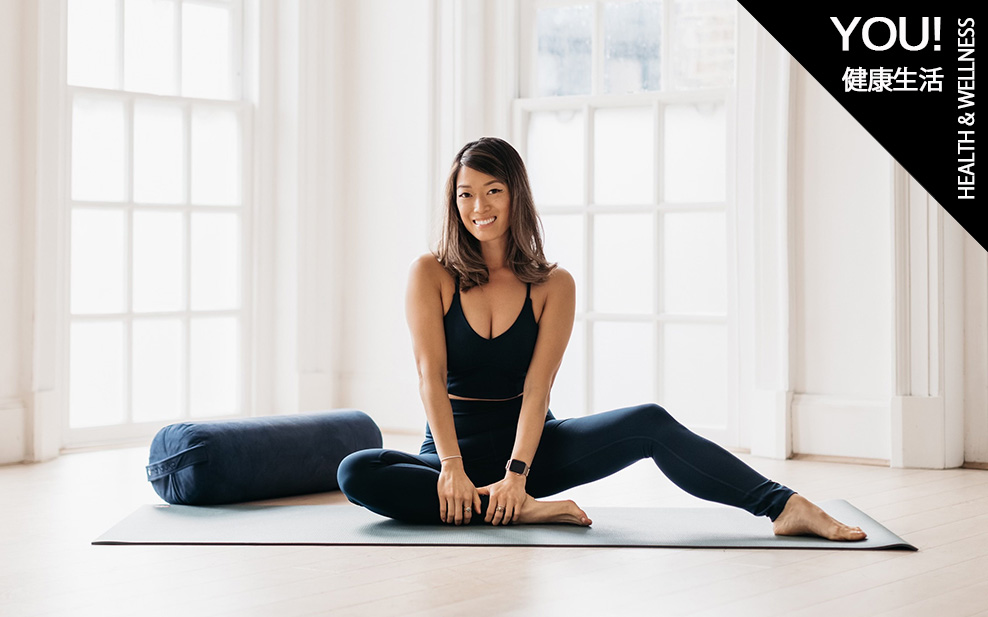
5 Easy Yoga Tips for Busy Hong Kongers
In today’s world of 24-hour business, endless to-do lists and multitasking as the norm, we are all busy… All the time. We might be largely working from home at the moment, but that doesn’t mean we’ve got less to do; we’ve simply replaced all the things that we had to do before at the office with all the things that we have to do within the confines of home.
A 2017 UBS study found that Hong Kongers have the longest working week out of 71 cities around the world. More recently, a 2020 survey conducted by Deacons revealed that 65% of employees are concerned at the number of hours they are expected to work. Finally, if you still need convincing of Hong Kongers tendency to be overworked, a 2020 Occupational Safety and Health Council report disclosed that 60% of workers in the city suffer from high levels of stress. It all adds up to a ticking time bomb of both short- and long-term health problems.
Thanks to our demanding lifestyles, we often find it hard to slow-down, or god forbid, pause for a moment. As a yoga teacher, whenever I ask my students how they are, the first thing they tell me in one way, or another is that they are busy. It doesn’t matter what profession they have, or if they are homemakers, they are simply busy, albeit grateful that they have a yoga class scheduled in.
I realise that not everyone is a yogi, but everyone has the potential to work a little yoga into their day to make life more manageable, meaningful and enjoyable. Here are a few quick & simple tips to help make that happen for both yogis & non-yogis alike:
Stretch It Out
Long working days mean we spend hours upon hours sitting at our computers, which can lead to a hip flexor strain, a rounded back, lower back pain and/ or a neck ache. Spend two minutes each day lying on the floor with a small cushion or pillow under the middle of your back (with your bum and head resting on the floor). This is a gentle supported backbend is a really comfortable yet effective way to stretch as it’s passive (no effort involved!), it opens up the front of your body, and allows you to ground yourself. This stretch releases tension build-up in your back and helps you to relax.

3 Minutes to Tranquillity
If you find yourself feeling overwhelmed or stressed at your desk, take a moment to breathe and recompose. Turn off your computer screen, mute your speakers, set a timer if you need and close your eyes. Sitting comfortably, turn your attention inward and simply focus on your breath, breathing slowly in through the nose and out of the mouth. Keep your attention on your breath for the full three minutes. If your mind drifts off, simply come back to your breathing. As you breathe, notice the sensation of the air flowing in and out of you, the small movements in your abdomen as you inhale & exhale, and try to feel more and more calm with each exhalation. This is a wonderful way to tune into your body and create a sense of calm. Scientific studies show that a few moments of conscious breathing each day is enough to help lower your heart rate, reduce depression, and reduce stress levels in your body.

Eat with Awareness
One good thing about working from home is that you can make healthy meals from scratch and with a bit of luck have a few extra minutes to enjoy your food. Conscious eating is a key principle of Ayurvedic eating. In Ayurveda, how you eat is just as important as what you eat, because it is essential for healthy digestion. At your next meal, try to eat free of distractions and use all five of your senses. Take your time to appreciate the smell of your food, the look of your plate, the texture of your food, the different flavours, and the sounds that you make when you eat. By eating more mindfully, you’ll make better food choices, appreciate your food more, and stop eating when you’re full.

Treat Others with Kindness & Patience
When work makes you feel tense and frustrated, it’s easy to project your anger at those around you. Yoga encourages you to practice kindness and patience towards others. Being kind can strengthen your relationships with those around you and your sense of satisfaction in life. In yogic texts there is a Sanskrit word, ‘Ahimsa’, which means ‘do no harm’. Kindness is free. It can be as simple as making an effort to smile or give a compliment. Know that your small caring actions can make a valuable difference to someone else’s day, in turn, you will be the reason that they smile.

Self-Care is Essential
We all know that to look after others, we need to look after ourselves first. A few self-care practices that work for me include:
- Taking a leisurely walk in the fresh air for 30 minutes each day without my phone
- Sleeping between 7-9 hours every night
- Staying organised with my work
- Eating food that’s not overly processed
Focusing on self-care is vital for your mental health, encourages you to make better choices and experience more joy in life.

I hope these easy-to-follow tips prove that even if you’re busy, you can still squeeze in yogic moments throughout your day, and the little things that you do add up to make a big difference to your complete and overall WELLbeing.
Written exclusively for WELL, Magazine Asia by Sarah Highfield
Sarah Highfield is an International Yoga Teacher from Hong Kong. She is the founder of Yogagise Yoga, visit her website for more information: www.yogagise.com or follow her on social media: @yogagise.

Thank you for reading this article from WELL, Magazine Asia. #LifeUnfiltered.
Connect with us on social for daily news, competitions, and more @wellmagazineasia





